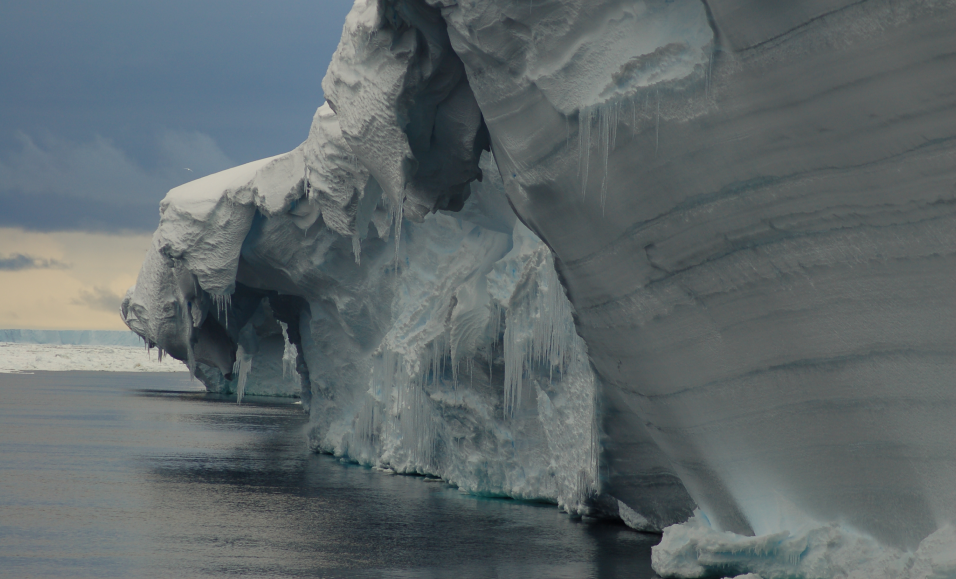The Antarctic Invitation

1/2 Changing Antarctic climates affect our weather patterns at home.

2/2 Professor Steven L. Chown on a sub-Antarctic field trip.
Visible impact
Every year that has seen substantial, and usually rising greenhouse gas emissions, has been one where we have invited Antarctica’s ice sheets to come to our shorelines, and its climate system to change in ways that affect ours.
For the most part, the Antarctic region has diligently filed away these carbon-laced invitations through the ability of its surrounding Southern Ocean to absorb human-generated heat and CO2, a long-lasting and powerful greenhouse gas. Until now, our impacts have been suspected, but not readily distinguishable from the natural variability of the complex system that is Antarctic and the Southern Ocean. Now, our impacts are fast becoming visible. Attribution to human causes of changes across the Antarctic region is sufficiently clear that conservative scientists, and even more conservative government-agreed international reports, are pointing to the consequences of our actions. A succinct summary is provided by a new report from the pre-eminent international Antarctic science organisation – the Scientific Committee on Antarctic Research.
The ocean and atmosphere are warming, and the Antarctic ice sheet is melting. Depending on the extent of our greenhouse gas emissions, that melt could contribute to 44 cm of global sea level rise when today’s toddlers are talking about their aged care, or 70 cm, if our emissions are not reduced, or potentially 2 m if ice sheets behave in ways that are not implausible. Although sea level rise impacts will vary across the globe, even with a 40 cm rise, 1-in-100-year coastal flood events become annual. Hundreds of millions of people will be impacted and the economic consequences contagious.
“It’s not only our backyards that are at risk. Our imaginations and inspiration are too.”
— Steven Chown, SAEF Director
Changing Antarctic climates also affect our weather patterns. Changes to climate patterns over the Antarctic and Southern Ocean (technically often called the Southern Annular Mode) affect droughts, heatwaves and their associated fires in south-eastern Australia. Just what we do to the Southern Annular Mode through our greenhouse gas emissions has a direct influence on our lives. And the changes are projected to continue. Importantly, these sea level and extreme event impacts will not just happen as the calendar turns over to 2100. They are already underway. Insurance costs are rising and for many electorates, projections are that significant proportions of properties will become uninsurable within the next decade.
It’s not only our backyards that are at risk. Our imaginations and inspiration are too. The ecosystems of the Antarctic and Southern Ocean are changing, and will do so even more dramatically. Under current conditions, indomitable emperor penguins, raising their families in Antarctic winters, are projected to be lost before the century is over. And those otherworldly, dramatic landscapes of rock and ice, transformed to boring suburban green because it’s easier for our weeds to make the continent their home. The call of the wild is being silenced.
Our Futures
Now that we understand, what’s to be done? The reciprocity between Antarctica and our homes makes the answer much more straightforward than it might seem. Look after our futures. Taking care of ourselves and our kids will take care of Antarctica. If we reduce flood and fire risk, by reducing emissions, we stop issuing such insistent invitations to Antarctica to come to our neighbourhoods. And we ensure that it remains the inspirational place it has always been. Emissions reductions are not a simple challenge, but we already know the solutions and the path we have to walk. Of course we cannot travel it alone. We need all the help we can get – from government, from business, and from our neighbours. But in effect, that’s helping ourselves, since we constitute our neighbourhoods and businesses, and our elected officials. Perhaps most critical is to reject the notion that it’s all too late and that we should give up any further effort. That’s just rhetoric from the fearful and the greedy. Everybody knows that momentum helps drive momentum. This is a snowball effect that helps us keep our world the way it is and helps Antarctica be where it should be – in the Antarctic.